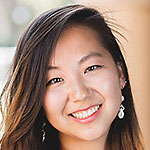
Meesh tells me about a conversation they had with a friend, reveling about the solar eclipse. “It is such a beautiful natural event. With technology, we know when it’s happening, why it’s happening, and where it’s going to be. But we wondered, what if we looked at this thing 100 years ago, and didn’t know what it was? Would we still think it’s beautiful? Would we be scared of it? Would we think the world is ending?”
The most recent solar eclipse occurred on Thursday, February 15, 2018. Long ago, given its dramatic and evident difference from the other days of the year, such a sky could’ve easily inspired fear in people who didn’t understand what they were looking at.
The fear, curiosity, and bewilderment that surrounded such difference back then is a reality Meesh navigates every day. As a non-binary person — someone who identifies as neither male or female but on a spectrum of gender, preferring the pronouns they or them — Meesh’s difference is apparent, and people are wrestling with similar questions. Is Meesh beautiful? Are we scared of them? Do we think the world is ending?
By simply walking into a room, Meesh disrupts certain social norms by depriving people of an immediate recognition of gender, and revealing what most of us have never noticed growing up: that based on gender, we know how to respond to someone appropriately, be it flirting, competition, and other gendered interactions society has made us rehearse throughout our lives.
Without the usual gender cues, Meesh invites you to get to know them as an individual on their own unique merits, simply as human.
Meesh shares, “What’s interesting is when people reduce gender to sex and biology. There’s animals that change their sex over time and intersex animals, and we’re able to look in awe of those animals and the diversity of nature. But we forget to do that with human beings, who are also a part of nature. How are we able to take these understandings of new discoveries and animals as truth, but remain unable to do that for people?”
God is Genderless
Meesh grew up in the suburbs of Victorville, California, with two loving older brothers who were supportive in many ways. “I always knew I wanted to be like them. It wasn’t their bodies that appealed to me per se, but more their love and energy that was very carefree. But my mom was always telling me you’re not allowed to play outside like your brothers; stay indoors; lighter skin is more beautiful. When we create binaries at a young age, we learn there’s a difference, and we can’t see ourselves in each other. There wasn’t a lot of space for me to exist with the same type of freeness as my brothers had.”
Assigned female at birth, Meesh chose to imagine an existence beyond the limited categories available to them. In the midst of finding the words to better represent themselves, Meesh was also learning about God.
God is genderless, but the biblical writers often characterize God as masculine, using he and him pronouns and referring to God as Father. Unavoidably, people project their own experiences of fathers and men onto God when reading the Bible. Some of the signifying characteristics of God also follow suit: God as powerful, strong, or authoritative.
What do we lose when we do not acknowledge God as Mother? God as Mother opens up new ways of interacting with a Life-Giver whose body was torn for her creation, a Comforter who does not sleep nor slumber in order to protect her beloved, an Absorber of the demands, anger, and heartache of children who hurt each other.

“There hasn’t been a lot of room to talk about God’s femininity or softness,” Meesh shares quietly. “There is a rejection and inferiority people place on femininity, but God’s softness is something that we all need; it’s what allows for vulnerability, connection, to bend the knee in order to see someone else. That’s not to say God is only soft. But I think softness is a characteristic of God that our current political administration or our world is missing. We have become desensitized — we hear about the the shooting in Parkland, Florida, and just scroll past it on our Facebook feeds. We’ve lost our softness, and we’ve lost our ability to relate to people.”
God is Divinely Unknowable
The inability of others to relate to Meesh stems from the debate around the idea of whether queerness is natural. “Natural” is often synonymous with “right” as a nod to God’s design for creation.
Yet what is “natural” has often been defined by men. Some of these definitions have stayed the same for so long that their validity becomes unquestioned. Black people were once believed to be biologically and naturally inferior, a “fact” attested to be scientifically and biblically true. Women were once considered the naturally weaker, less intelligent sex. Humanity is still grappling with the consequences of these dehumanizing definitions today. Had it not been for the imagination of oppressed minorities to look beyond their circumstance and demand their humanity be dignified, our society would be further behind than it is already.
“It’s not that I didn’t want to be a woman,” says Meesh. “I just felt like my energies encompass more than these two arbitrary made up things [of being a man and a woman]. The biggest thing that comes in between people appreciating other folks who are genderqueer or non-binary is that there’s a lack of imagination.”
Looking at Meesh’s body alone demands imagination. For our interview, Meesh donned a brown, broad-rimmed felt hat high on the back of their head, their hair cropped short. They wore a light blue and white striped cotton shirt buttoned all the way up, with a silver Casio watch peeking from underneath the left sleeve and glints of jewelry from their ears. Cuffed pants from Old Navy revealed bright blue socks with tigers on them, and they’re finished off with mauve suede boots. Meesh’s outfit suggests an intentional orchestration of style and accessories, yet the pieces put together do not betray any one gender. This unknowableness in Meesh makes others uncomfortable, but in fact, it is a tension that all Christians are familiar with in an intimate way.
Meesh says, “Everyone doesn’t fully know God, but they’re okay with the discomfort of that unknown. I think there’s something divine about things that are unknown, because they haven’t been tainted by our words, by our systems, by labels we can place onto them or put in boxes. In science or the universe, some things exist as they are without us recognizing it or naming it. Not knowing everything leaves room for us to wonder, to see beauty in places we haven’t seen before, to ask more questions, and I think that’s what’s divine about the unknown. It sparks our curiosity beyond what we know.”
Even the act of realizing heaven on earth demands an imagination to look and live beyond what we see. Heaven can be limited not just by our actions, but by our ability to imagine better and outside of our direct experience.
God Requires New Words
If actions are limited by imagination, imagination can be limited by a lack of words. In the Bible, the writers used YHWH as a substitute name for God, reflecting God’s uncontainable nature.
“I’m still coming to terms with the fact that I’ll never be able to articulate who or what it is that I am, because there aren’t enough words to describe how beautiful humanity is. We cling to words because it makes us feel like we have control, but I wonder if the Christian community is able to release some control over knowing who deserves to experience God. The God I was taught to believe in as a youth said that there wasn’t room for me as a queer person to experience God’s goodness.
“People are so focused on what is in the center, what will give them power, or make them feel accepted. But I’ve learned that God is never really at the center. Instead, God’s found kicking it at the margins. When marginalized people, specifically Queer, Trans, Black, and Brown people, are pushed so far to the edges of this world, we’re actually able to create different worlds and words for ourselves. We’re able to hold each other in a way this world chooses not to — it’s able to, it just hasn’t tried.
Changing their first name was a pivotal moment in Meesh’s life because they felt disconnected to the word “Michelle”, but it was a name given to them by their mother, a woman of faith and strength. “When I told my mom, she said that when God changes someone’s name in the Bible, that’s a signifier of their faith. I think she was talking about Abram to Abraham. And she said, ‘What I see in you is you have a lot of faith to step into yourself unapologetically despite any backlash that will happen to you — that faith is only something from God.’ The only thing that she requested was to keep my second name.”
Meesh’s full name is Meesh Faith Andamo Cabal. Like Jesus, they are stepping into their faith, putting their body behind their belief that they are made in the image of God as a non-binary person. These days, Meesh is less interested in what is right, or what is wrong, but is more concerned with what is loving. “That’s a more complicated question, because on a daily basis, people do things that are unloving all the time, whether we think it’s right or wrong.”
By shutting out non-heteronormative people of color from the church, we lose the benefit of their particular experience of God, to the detriment of all creation and the work of God. There is much we don’t understand about gender-nonconforming people, but perhaps our say in naming them beautiful or not doesn’t matter. Perhaps they simply are, and in time, we’ll learn why.

Sarah D. Park (she/her) is a second generation Korean American born in Los Angeles, CA. Her work reflects her value for finding abundance in community and the power of telling our own stories. She’s currently based in NYC and spends her time eating cheeseburgers, creating community spaces, and enjoying her son.

Michelle Kwon is driven by the need to create thought-provoking images. She tries to better understand humanity through books, conversations, and traveling on her two small feet. For more, visit her website at michkwon.com or follow her Instagram @agentlegraph.